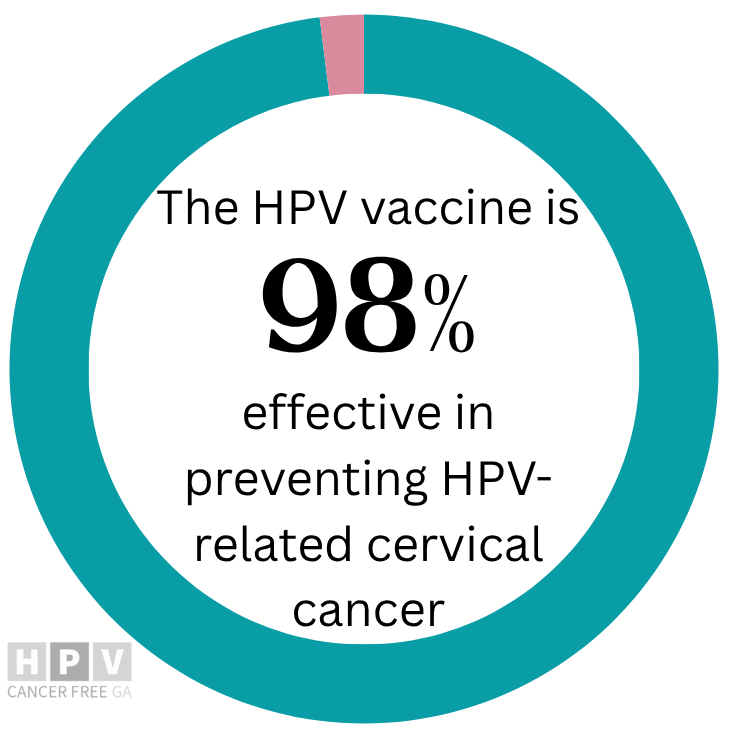Effectiveness, Safety, & Other Concerns

The HPV vaccine is one of the most well-studied vaccines and has consistently been found to be safe and effective in preventing HPV infections and related diseases among males and females. In clinical trials with thousands of participants, the HPV vaccine was shown to be over 98% effective in preventing HPV-related cervical cancer (Giuliano, 2019). In Scotland, among women who were vaccinated at 12 or 13, no cases of cervical cancer were reported (Palmer, 2024).
The HPV vaccine is safe and has been recommended for more than a decade. The vaccine’s safety has been thoroughly tested - first in large clinical trials and through ongoing monitoring of the hundreds of thousands of people who have received the HPV vaccine. In a study of over 600,000 vaccine doses, no associations were found between the HPV vaccine and serious conditions like Guillain-Barré syndrome, seizures, or allergic reactions. Like many vaccines, some people may feel light-headed or faint after the injection. Two large studies (Klein, NP et al., Chao, C et al.) involving more than 300,000 doses found only fainting and mild skin reactions at the injection site to be associated with the vaccine. The most common side effects are mild, such as pain, redness at the injection site, fever, or headache. To prevent falls, it’s recommended to stay seated for a few minutes after getting vaccinated.
We understand that some parents may feel 9 to 12 is too young for the HPV vaccine. However, the HPV vaccine is most effective when given before exposure to HPV. While regular Pap smears can help detect and prevent some cervical cancers, screening tests do not exist for all HPV-related cancers. That’s why vaccinating at this age offers the best long-term protection against cancer before any exposure to the virus occurs.
Some parents may also worry that HPV vaccination is linked to early sexual activity. But research tells a different story: numerous studies among adolescents have found no increase in sexual activity among those who received the HPV vaccine (Bednarczyk, R et al., Brouwer, A et al., Jena, A et al.).